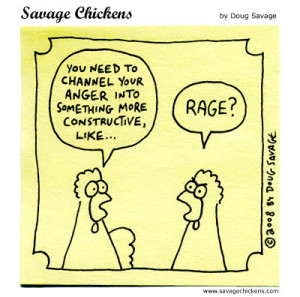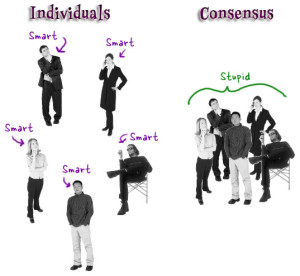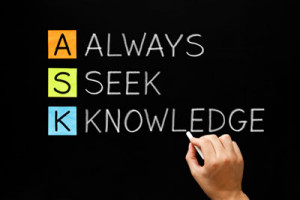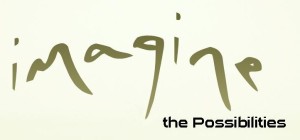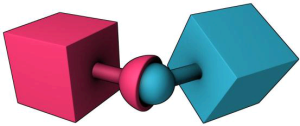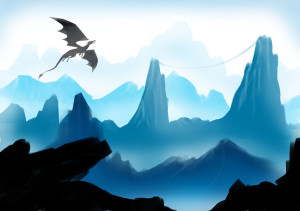Oct 11 2015
DAY 25 – 30 Days To The New Economy
Your Role In History As An Entrepreneur
H U M A N C A P I T A L
Adapted from the book 30 DAYS TO THE NEW ECONOMY by Peggy Salvatore
I’ve heard some people say that they don’t like the term “human capital” because it sounds cold and impersonal. Actually, when I first heard it years ago, I liked it for exactly the opposite reason. Human “capital” describes the value of workers to an enterprise. Whereas labor is typically counted as a cost, capital describes an asset.
Without knowledge workers
in the New Economy,
a business has no valuable assets.
On DAY 23, we discussed the importance of enterprises as learning organizations since knowledge and information are growing exponentially by the minute. In a knowledge-based economy, humans are the most important resource.
The knowledge-based worker turns the idea that machines displace workers on its head. Workers who tend machines or build widgets that can be assembled by robots are underutilized. One study by the Martin School at Oxford predicts that 48% of American jobs alone will be lost to robotics in the next 20 years. This is good news because as the New Economy grows, workers grow in importance and stature. Rather than being displaced by machines, knowledge workers are freed for higher level tasks, tasks that use more of their innate abilities and engage their interests. Higher level tasks in a knowledge economy move workers closer to full actualization of their potential.
A 2015 Gallup Poll
found that 70% of
Americans hate their jobs.
I am going to guess that statistic can be pretty closely correlated anywhere on the planet. Being freed from loathsome employment is the joy of Internet Joe and the people on his team. As the lowest, ugliest jobs disappear, the entrepreneur and his creative staff can enjoy serving a growing global online market of potential customers who will consume vast amounts of innovative human resources.
Worker displacement by machines has always resulted in raising the living standard of all despite fears of laborers during the period of dislocation. The accelerated process in a rapidly-expanding knowledge economy should be no different.
So, “human capital” it is.
Hiring Knowledge Workers
Internet Joe is building his online empire on the shoulders of knowledge workers. Deep knowledge workers. Highly specialized people who may be in his employ or may be supplying services as a vendor.
The human capital resources needed by the entrepreneur in the New Economy are the best available in the world, literally in the world, serving the world. Knowledge workers as human capital are always learning because growth is joy.
As an entrepreneur, you will be supporting workers who find fulfillment in what they do. That kind of leadership will require a different brand of guidance than leadership in the past that was focused on motivating workers to perform repetitive or onerous tasks. Entrepreneurial leadership in the New Economy is more about clarifying the vision than motivating your employees.
Knowledge workers on your team will sometimes lead you, and that is a perfectly acceptable turn of events when you are working with highly valuable human capital.
# # #
C’mon back TOMORROW 10/12 for Day 26 —
You got the spunk. You got the ideas. You got the
money. You got the marketing. You got the contacts.
But do you “Got The People”?
# # #
SPECIAL A N N O U N C E M E N T
Sign up NOW for NOVEMBER 29th (Sunday Night after Thanksgiving)
LIMITED SEATING COACHING WEBINAR:
“ENTREPRENEURS ARE AGENTS OF CHANGE… Accelerating Your Business”
Get fresh, informed, proven insights geared specifically to your business market, your biggest problems, your biggest opportunities.
With Hal and Peggy’s wealth of business coaching experience, you’ll learn how YOU match up with what successful entrepreneurs are thinking and doing RIGHT NOW. Get ideas you never imagined. Gain the traction you need within 2 hours — not days or weeks or months. Simply call 931.854.0474 Central Time: 11AM to 4PM Monday-Friday for details, to explain your business pursuit focus and to reserve your seat! $99 total for 2 hours. Satisfaction Guaranteed.
———-
For more information on Peggy Salvatore’s book: 30 Days to the New Economy [© Peggy Salvatore 2015. All Rights Reserved.] click on ENTREPRENEUR NEWS or visit ow.ly/RysnP for the E-book
# # #
Hal@Businessworks.US Peggy@Businessworks.US
Open Minds Open Doors
Thanks for your visit and make today a GREAT day for someone!


